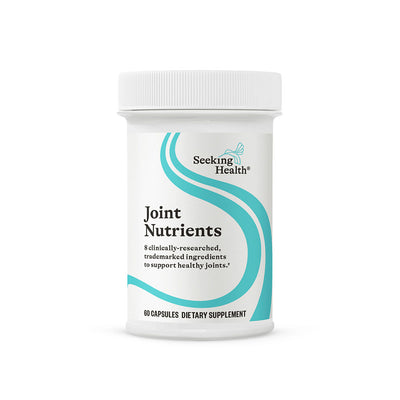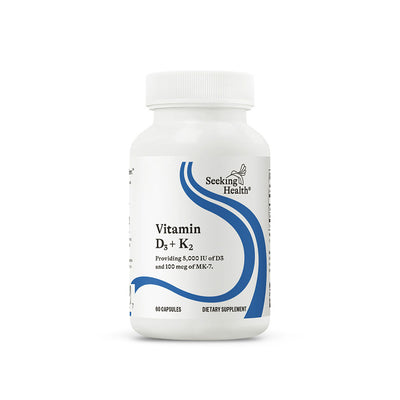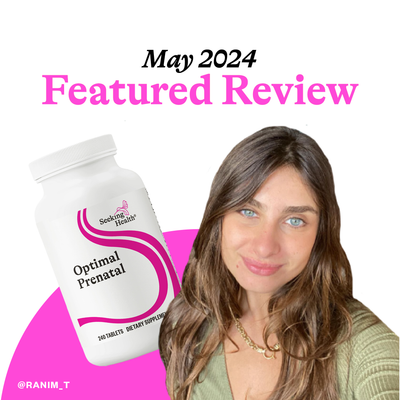Sometimes, your body can't handle folic acid, and you'll experience unpleasant side effects. You may feel frustrated when that happens, not knowing why or how you can fix it. Identifying the underlying problem can help you make the necessary changes when you’re experiencing too many folic acid symptoms so you can keep folate in your diet. Keep reading to learn more about what may be happening and the steps you can take to increase your chances of tolerating this essential nutrient.
What Are the 12 Side Effects of Folic Acid?
Folic acid is a synthetic form of folate, a nutrient supporting numerous bodily functions. It's important to be aware of its potential side effects. These side effects may include:(1)
- A sour mouth
- Nausea
- Gastrointestinal disturbances
- Loss of appetite
- Confusion
- Irritability
- Restlessness and excitability
- Problems sleeping
- Skin rash
- Itching
- Redness and flushing
- Breathing problems
If you think you are experiencing side effects from folic acid, please contact your healthcare practitioner immediately.

Why Can’t You Tolerate Folic Acid?
You may have one or more of several undiagnosed health conditions that may cause folic acid’s adverse effects.
- Potassium deficiency: If your body is low in potassium, it might be hard for you to get the full benefits of folate. The electrolytes found in potassium support normal fluid levels within your cells and blood. Your body needs this hydration to use and process folate properly.
- Dehydration: If you don't drink enough water, you're not creating an environment that supports folate. Your body needs hydration to support the nutrients it needs. Your gastrointestinal tract and gut microbiome can suffer when you don't drink enough water. Both play vital roles in folate absorption.
- Oxidative stress: Free radicals can damage your DNA through a process called oxidation. Oxidation can damage your cells, weaken your immune system, and lead to oxidative stress. Continued oxidative stress can also decrease the amount of folate absorbed in your gut’s microbiome.(2)
- Folate: producing bacteria in the microbiome (small intestinal bacterial overgrowth—SIBO) - The bacterial balance in your gut’s microbiome can sometimes be thrown off, leading to conditions like SIBO. The bacteria in SIBO can create more folate than you can use, leading to excess.(3) The excess can cause many of the side effects you read about earlier in this blog.
- High cortisol/tension: When your mood is low or you feel nervous, your body releases cortisol. Cortisol affects every organ system in your body.(4) For example, when your cortisol level gets high, it affects your nervous system. Your nervous system is also linked to your gastrointestinal and digestive systems. This occurs through the gut-brain axis. They may suffer, too, making it hard for your body to absorb and use nutrients like folate properly.(5)
- High histamine levels: High histamine levels in the body can also lead to folate intolerance. When there’s too much histamine in the body, it can interfere with how well you handle folate. It can also cause inflammatory responses within your body, including your gut. Chronic gut inflammation can lead to conditions such as inflammatory bowel disease.(6) If you experience inflammation, it can affect how well your body uses folate.
It’s important to remember that folic acid is not bioavailable, unlike folate, methylfolate, and folinic acid.† It may not metabolize properly and can build up in your blood. This build-up can cause your homocysteine levels to rise, and you may not feel too well. Folic acid can also mask a vitamin B12 deficiency, and you may become anemic.
Talk to your healthcare practitioner to determine if folic acid is bad for you. They can help you decide what you can do to minimize adverse reactions so you can focus on getting the folate you need into your diet to support your health.
What Can You Do To Support Folate To Minimize The Risk of Side Effects?

The first thing you can do is stop ingesting folic acid. There are other ways you can support healthy folate levels to give it the best chance of doing its job without causing trouble. Practices you can start adding to your daily routine include:
- Eating foods naturally containing potassium and folate, like leafy greens, whole grains, and beans.
- Drinking plenty of water. Drinking water and eating foods full of folate support healthy processes in your body so you can feel your best.
- Eating foods with antioxidant properties like vitamins C, D, and A supports healthy cell function.
- Keeping your gut health in check will ensure you get the most out of what you eat. Including prebiotics and probiotics in your daily diet helps support a healthy gut microbiome and supports your ability to absorb nutrients.
- Engaging in activities like exercise, meditation, yoga, and talking with a trusted friend supports a happy mood and your ability to cope. These practices can also help support healthy folate levels.
- Staying away from foods that may trigger histamines, including processed meat, aged cheeses, strawberries, tomatoes, nuts, and fermented foods like sauerkraut. Unfortunately, chocolate, wine, and beer are also included in this list!(7)
Switching to a folinic acid supplement may also help. Folinic acid (5‐formyl tetrahydrofolate) takes a few additional enzyme steps before methyl groups are formed and then released for your body to utilize. This slower delivery may be more tolerable if you’re experiencing side effects.†
Seeking Health’s Folate-Supporting Supplements†
Seeking Health has several supplements that support your body’s ability to tolerate folate and minimize the risk of side effects—they contain folinic acid instead of folic acid. Our supplements come in capsules, lozenges, and chewables, making supporting good health tasty and convenient!†
- Folinic Acid Lozenges contain methyl-free folate in a tasty, well-digested lozenge. They are designed to support healthy methylation, homocysteine levels, cognition, and mood.
- Hydroxo B12 with Folinic Acid comes in capsules and provides potent methyl-free B12 and folate to support healthy energy levels, cognition, and cardiovascular function.
- B Complex MF is a methyl-free vitamin B complex designed to support healthy energy production and mood.
- Kids Multivitamin Chewable MF is a comprehensive kid’s multivitamin and multimineral that supports methyl-sensitive kids from 1 year old and up. These chewables are tasty and kid-approved!
The Bottom Line
Folate is integral to your health. But if you try to get it from folic acid and can't tolerate it, you could have a health condition needing attention. Your healthcare practitioner can help find the problem so you can start making changes. This may mean avoiding folic acid and opting for natural forms of folate like folinic acid, staying hydrated, avoiding histamine-triggering foods, supporting a healthy gut microbiome, and supporting feelings of calm and well-being. These practices help support folate tolerance.†
You can also explore the many supplements Seeking Health has developed with you in mind that support your ability to tolerate folate.†
References
- https://www.mayoclinic.org/drugs-supplements-folate/art-20364625
- https://pubmed.ncbi.nlm.nih.gov/30108274/
- https://pubmed.ncbi.nlm.nih.gov/32679220/
- https://my.clevelandclinic.org/health/articles/22187-cortisol
- https://pubmed.ncbi.nlm.nih.gov/32549835/
- https://pubmed.ncbi.nlm.nih.gov/30224900/
- https://my.clevelandclinic.org/health/diseases/histamine-intolerance
† These statements have not been evaluated by the Food and Drug Administration (FDA). This product is not intended to diagnose, treat, cure, or prevent any disease.












